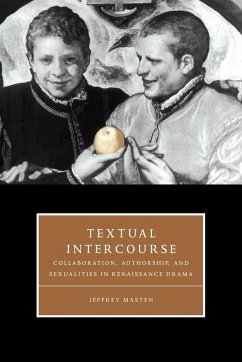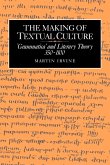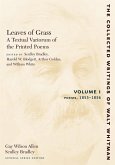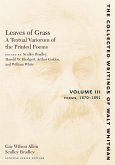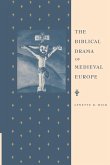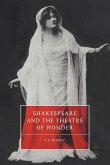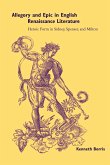Textual Intercourse proposes that the language and practice of writing plays in early modern England was inextricably linked to languages and practices of eroticism, sexuality and reproduction. Jeffrey Masten reads a range of early modern materials - burial records, contemporary biographical anecdotes and theatrical records, essays, conduct books and poems; the printed apparatus of published plays, and the plays themselves - to illustrate the ways in which writing for the theatre shifted from a model of homoerotic collaboration toward one of singular authorship on a patriarchal-absolutist model. Plays and collections of plays by Shakespeare, Shakespeare and Fletcher, Beaumont and Fletcher, Margaret Cavendish, and others, are considered. Textual Intercourse illustrate the ways in which methods attuned to sexuality and gender can illuminate more traditional questions of authorship, attribution, textual editing and intellectual property.
Table of contents:
Introduction; 1. Seeing double: collaboration and the interpretation of Renaissance drama; 2. Between gentlemen: homoeroticism, collaboration, and the discourse of friendship; 3. Representing authority: patriarchalism, absolutism, and the author on stage; 4. Reproducing works: dramatic quartos and folios in the seventeenth century; 5. Mistris Corrivall: Margaret Cavendish's dramatic production; Notes; Bibliography; Index.
Textual Intercourse brings together literary criticism, theatre history, the study of printed books and gender studies to offer new readings of plays by Shakespeare and others. Jeffrey Masten shows how the writing of Renaissance drama was conceptualised (on stage and in print) in the languages of sex, gender and eroticism.
Shows how the writing of Renaissance drama was conceptualised in the language of eroticism.
Hinweis: Dieser Artikel kann nur an eine deutsche Lieferadresse ausgeliefert werden.
Table of contents:
Introduction; 1. Seeing double: collaboration and the interpretation of Renaissance drama; 2. Between gentlemen: homoeroticism, collaboration, and the discourse of friendship; 3. Representing authority: patriarchalism, absolutism, and the author on stage; 4. Reproducing works: dramatic quartos and folios in the seventeenth century; 5. Mistris Corrivall: Margaret Cavendish's dramatic production; Notes; Bibliography; Index.
Textual Intercourse brings together literary criticism, theatre history, the study of printed books and gender studies to offer new readings of plays by Shakespeare and others. Jeffrey Masten shows how the writing of Renaissance drama was conceptualised (on stage and in print) in the languages of sex, gender and eroticism.
Shows how the writing of Renaissance drama was conceptualised in the language of eroticism.
Hinweis: Dieser Artikel kann nur an eine deutsche Lieferadresse ausgeliefert werden.

